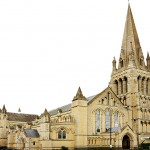
The issue of faith and participation in faith communities for people with learning disabilities is not widely explored in the literature. In 2004, the foundation for people with learning disabilities published the report of a two-year action research project to develop and describe creative ideas for meeting people’s religious needs and produced a good practice guide for services on meeting people’s religious needs
The purpose of this study in the United States was to look at what characteristics of faith communities might be related to greater inclusion.
The researchers asked 160 respondents to respond anonymously to a survey about inclusion of people with learning disabilities in their faith community.
They grouped questions together to attempt to identify the degree to which faith communities welcome and include people with disabilities; what contribution members of the congregations of those communities might make to that inclusion, what roles and contributions the individuals with disabilities themselves made to the life of the faith community and whether their were any issues of physical accessibility.
They found from the responses that those faith communities that were more inclusive had a number of characteristics. The faith leaders themselves were committed to inclusion and used a range of educational resources to address disability-related issues
They found the leaders in those communities portrayed people with disabilities positively in religious teachings, had strong ties to disability organisations; and a strong orientation towards promoting social justice.
The authors suggest these five characteristics could form the basis of a framework for promoting inclusion of people with disabilities in all faith communities.
Characteristics of Inclusive Faith Communities: A Preliminary Survey of Inclusive Practices in the United States, Griffin, M et al., in Journal of Applied Research in Intellectual Disabilities, 25: 383–391.
